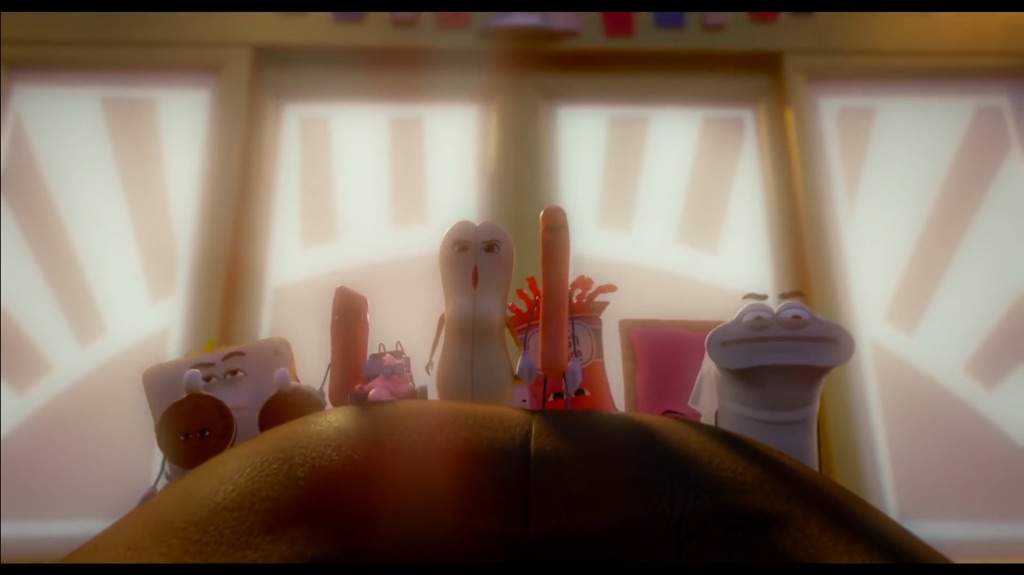

Instead, the filmmakers don’t over-dramatize and let the story stand by following the relationship of Mildred and Richard and their challenges - a tack that came with the cost of a fairly flat narrative, without much fancy dialogue or typical Hollywood twists and turns that many movie goers are accustomed to.


The film strayed from traditional lawyer courtroom movies, in that there was no big climactic scene of arguments at the Supreme Court. After one court hearing, he and Philip Hirschkop, another lawyer who handled the case, approach Richard and Mildred on the sidewalk and reassure them, saying to call if they ever need help, all done with a video cameraman that Cohen flags to shoot footage of the empathetic exchange - presumably for marketing content for the lawyer. He comes across as a boyish lawyer, eager to make a mark, who you almost can’t take seriously. Kroll’s portrayal of Cohen got some laughs. Richard quickly shoots down the idea, which Cohen quickly takes back - “That was a mistake” - and Richard is none too impressed, telling Mildred after the meeting: “You get what you pay for.” Facing the fact that he’s dealing with stale claims, Cohen suggests that the couple create fresh ones, saying they could travel back to Virginia, get arrested again, and then set off the legal proceedings from there. That first meeting doesn’t go so well, as Cohen suggests a legal strategy to appeal the Virginia judge’s sentencing. We soon discover that it’s temporary space: before meeting the Lovings, the ACLU lawyer enters an office belonging to another lawyer, swipes his name placard from the desk, replaces it with his own, and then shoves all the lawyer’s family photos into the drawer. In one scene, Bernie Cohen, portrayed by comedian Nick Kroll, agrees to meet with Richard and Mildred Loving at a local Washington, D.C.

#Who plays douche in sausage fest pro#
Lawyers who watch the film should get a kick out of the comic relief, which plays tongue-and-cheek with the legal profession and pro bono lawyers. At some point during their retreat to the District of Columbia, Mildred receives a call from Bernard Cohen, a young ACLU lawyer who agrees to take on their case pro bono. Then a lawyer in town, Frank Beazley, convinces them to plead guilty before a racist judge, under an agreement that a one-year prison sentence will be suspended for 25 years so long as they leave the state during that time. with plans to live together in the small town of Central Point, Virginia. Throughout the two-hour film, Richard and Mildred Loving, portrayed by Joel Edgerton and Ruth Negga, take us into the life of couple who find themselves woken in the night, arrested and jailed after word gets out through an anonymous tip that the two had married in Washington, D.C. “The ways to remain hopeful are things we as the ACLU have to tap into,” said Romero, before posing the question: “Who are the current equivalents of the Lovings?” Supreme Court in 1967.Īnthony Romero, executive director of the ACLU, spoke briefly before the screening, saying that with the election of Donald Trump and a number of his recent conservative appointments, “It’s important now to take a moment and relish the (country’s) successes.” After years of lawyering, the law was ruled unconstitutional by the U.S. Photo by ALBERTO PIZZOLI/AFP/Getty Imagesįocus Features held a screening Monday evening in downtown Manhattan for its new movie, Loving, which tells the story of an interracial couple in Virginia who were jailed and then banished from their home state after authorities learned about their marriage in 1958.Īccording to state law at that time, marriage was illegal between whites and people of color under an anti-miscegenation statute, which the couple appealed with the assistance of the American Civil Liberties Union. Director Jeff Nichols, Irish-Ethiopian actress Ruth Negga and Australian actor Joel Edgerton arrive for a screening of the film “Loving” at the Cannes Film Festival.


 0 kommentar(er)
0 kommentar(er)
